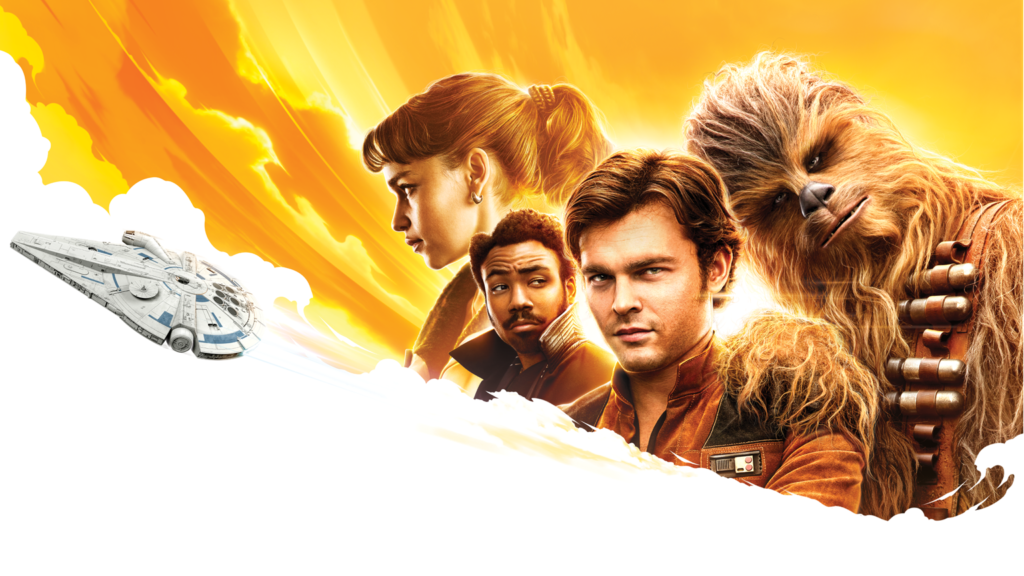
Note: This article contains spoilers for Solo: A Star Wars Story. If you haven’t seen it yet and want to come in fresh, come back after you’ve seen it.
Takes on Solo: A Star Wars Story are as broad as the galaxy it takes place in. Sadly, a variety of factors means it’s the poorest-performing Star Wars movie ever. Which is a shame, as it’s a fun film that explores some interesting times in the series canon.
On the surface (and, well, in general), Solo is the origin story for Han Solo and his whole deal. We don’t see every single caper that made him the lovable jerk he is by Episode IV, but we get the high points. We even see how he got his name. And that moment — a throwaway, almost corny move — is our cipher for the movie.
Because Solo doesn’t just refer to the character of Han Solo. “Solo” — the position of being on one’s own — is an overarching theme of the film. And it’s a philosophy all our characters struggle with: the necessity, or merit, of being alone in order to survive.
Qi’ra: Doing What She Must
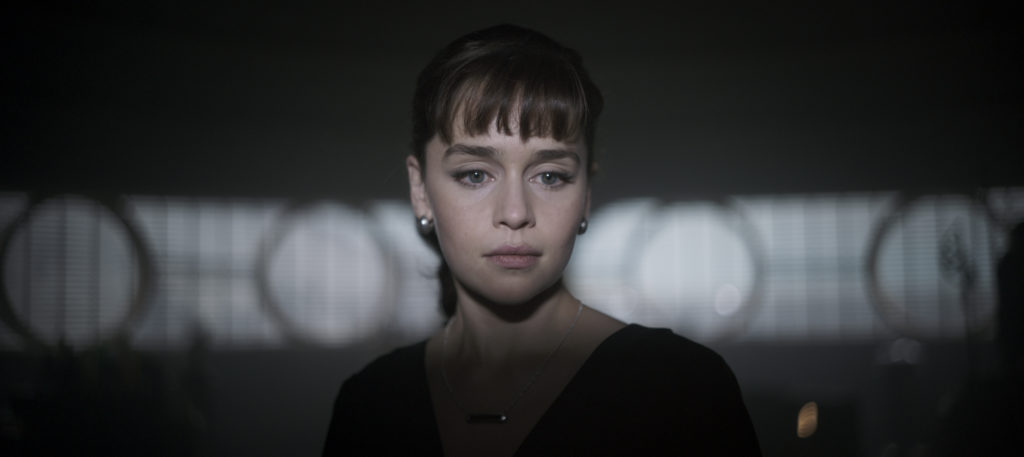
Solo starts out, appropriately enough, like something out of a Ron Howard coming-of-age film. Two kids with one shot at freedom, escaping in a stolen vehicle, dreaming of their adventures together. Their plans have very little form, but there’s one certainty: they’ll be together. And that falls apart almost immediately.
Qi’ra’s story is one brought about by chance and timing. If they’d only been a bit quicker through the gate, or if Han had been a bit snappier with his deception, things might be a lot different. But Qi’ra grew up rough. And her philosophy was always one of doing what you had to in order to stay safe. We see that in her earliest scene. She wants to be with Han, but when push comes to shove, Priority One is “don’t die.” Even if that means abandoning her original goal.
Dryden Vos is a character who relies on confidants and charisma to make his world go ’round. And at first glance, it may seem that Qi’ra has thrown in with him completely. But even as close to him as she is, she’s still chosen a type of solitude — it just happens to be a completely emotional one, existing within her new scene by allowing Vos to believe she is there for him.
Then again, saying she “chose” this is difficult. As mentioned, a lot of where she is now is the result of chance. Regardless, her time away from Han and in the service of the Crimson Dawn made her, at least emotionally, a solo entity. She may move among politicians and outlaws and Sith, but as a party of one. We get the feeling, or at least are allowed to feel, that this was to save her some heartbreak. Whether she really wanted to go with Han, or whether she knew exactly what he needed to hear — or both — will be up for discussion forever.
Beckett: Trust No One
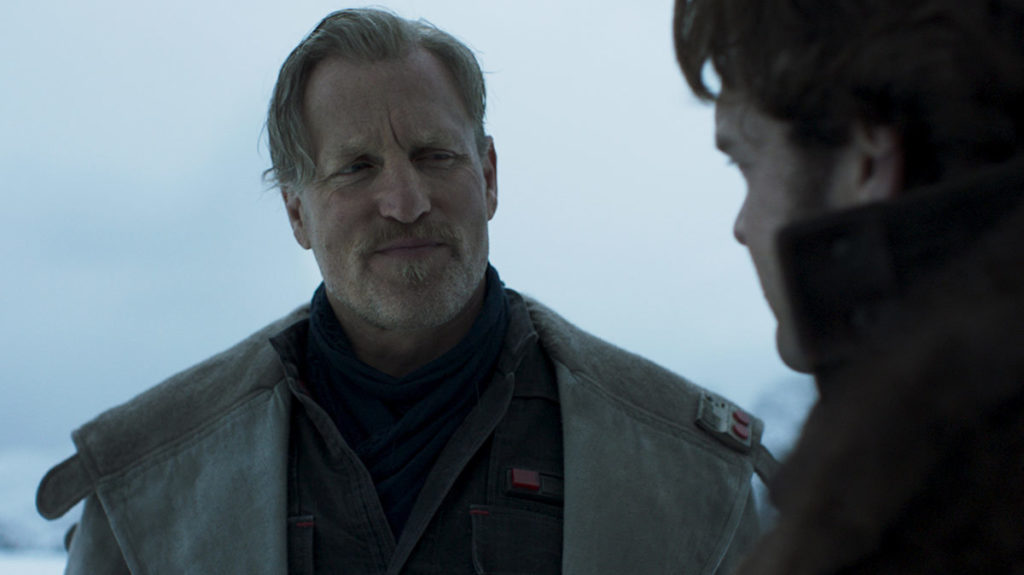
Beckett is, to put it simply, Han’s Han. He’s a gun-spinning, hard-talking, no-nonsense cool guy. He’s everything Han wants to be. But as much as Beckett would like us to believe otherwise, he doesn’t enter the movie as a free entity — and I don’t just mean because he’s married.
When Beckett loses Val, we see a definite change in him. We haven’t known him very long, and we meet him exactly when Han does, but the chemistry between Beckett and Val is enough to make things extremely evident. He may talk as though he was never close to anyone, as though his “trust no one” philosophy extended even to his own wife. But it doesn’t take an expert or an old friend to see the truth. That philosophy is true now where it wasn’t before. Because Val is gone, and gone in a very permanent way.
At the end of the movie, he would have us believe that he was always the double-crossing, triple-crossing, self-interested outlaw you see before you. But what he is by the end of the film is what he became over the course of it. This is a man who dared to love and trust, and the one person he opened up to is gone. Sadly, Val’s speedy fridging means we’ll never get a really good look at what they brought to each other’s lives, and thus what he lost.
But Beckett’s “solo” nature is one we see, or feel, quite a bit in our own lives. “That’s what I get for caring about someone.” A closing-off, a full heel-turn because opening up only leads to sadness. It’s a type of protection, but ultimately an ineffective one.
Han: Decidedly Not Solo
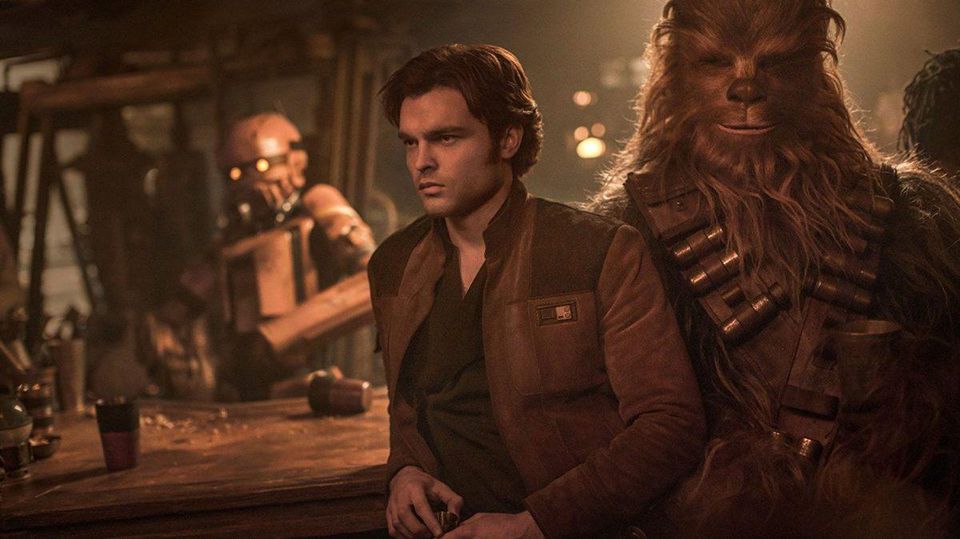
Despite this being Han Solo’s movie, and despite Han getting his “surname” from his literal solo status, he is the one character who has the most issue with the concept of being alone. He is always looking for a place to be, a person to be with. And this may mostly be as a means to an end, as a way to become an awesome pilot. But there’s more than a little trust, of needing and wanting to belong, in Han.
This young Han’s “weapon” is friendship. He befriends Chewbacca, turning a pit monster into a co-pilot. He “befriends” (?) Lando, even if it’s just to get his hands on a ship. He even befriends Beckett, whether the latter will admit it or not. He has talents, but he primarily gets around by cooperation and friendship.
Of course, this all leads back to Qi’ra. Han does have a goal of becoming a pilot, but she is an indispensable part of his dream future. As he joins the military, then a band of smugglers, his fixation is on achieving a future where he’s not alone. More often than not, that mentality means he won’t understand when someone just takes off out from under him. The idea that someone would say “I’ll be right back” and then jet shocks him more than once. He’s not completely unaware of it — by the end of the film, he’s learned that people are capable of being fully self-centered. He’s just selective about who he’s willing to believe those people are.
But that sense of community, as unaware of it as he is, leads to listening to and helping Enfys Nest. And, as we know, that leads to a rebellion, kicking off the story we know and love. And in the end, he has his home and family in the form of the Falcon and Chewie. He’s not remotely “solo,” though he has come to terms with other people’s need to be.
Lando: He figured it out.
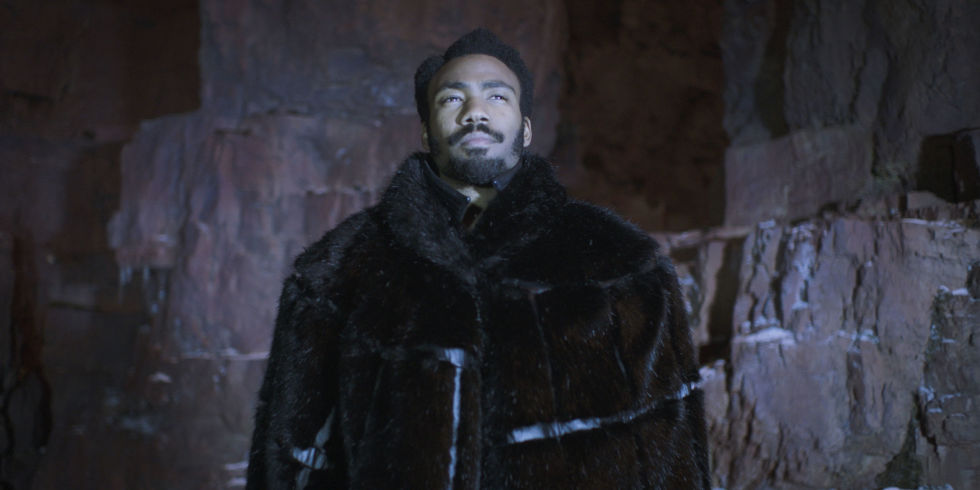
As a coda, it bears pointing out that one character has mastered a healthy solitude: Lando Calrissian. He’s gregarious, flirty, and outgoing, so we aren’t inclined to think of him as a solo act. But even when he’s with L3, he’s self-sufficient. He’s happy to be. He’s comfortable moving among different groups. He can pick and choose his situations. If he loses someone dear to him, it doesn’t destroy his world view; he copes and moves forward. His methods aren’t always honest, but they’re his.
Lando’s appearance was a treat for fans of Star Wars, but it was also a little nod to the fact that a “solo” life is neither impossible nor inherently bad. There’s a huge difference between “trust no one” and “don’t put all your trust in someone else,” between “never get too close to anyone” and “learn to be okay alone if you have to.” Underneath the capes and winks and cards up his sleeve, Lando may well be the most mature character in Solo. Because he’s the one person out of the entire cast who, if everything and everyone around him were destroyed, would pick himself up and keep going. Seriously, can you think of anyone else who wouldn’t lose their absolute mind at losing the Millennium Falcon in a card game?
He succeeds where Han, Beckett, Qi’ra, and others fall short: knowing that you can be solo and not alone, self-sufficient and not mistrustful. We all kind of want to be like Lando already, but that’s one more thing he’s doing perfectly.
Solo may be primarily a heist flick in space, but it also takes moments to reflect on what being alone — by choice or by chance — can do to you. Being able to function solo is a gift; being afraid not to is something else entirely.


Comments are closed.